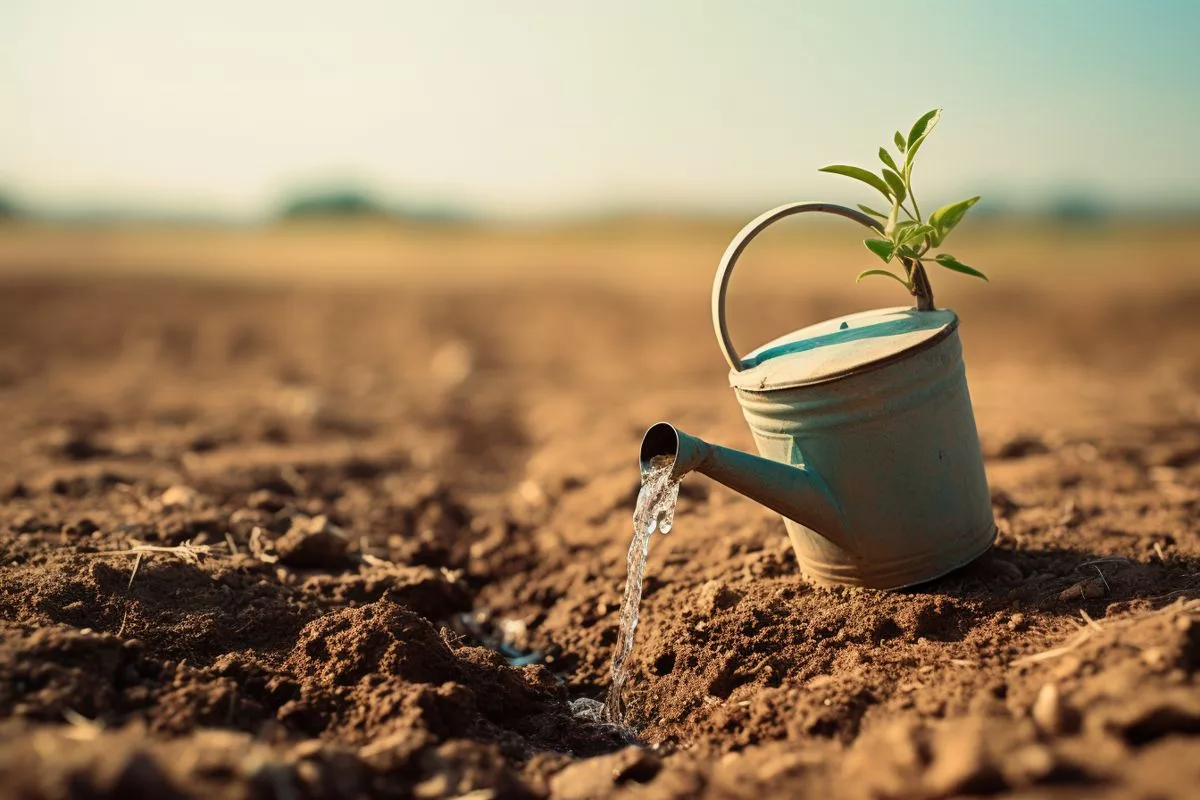A new campaign led by the Commission for Gender Equality (CGE) is launching in Mpumalanga, South Africa to eliminate Gender-Based Violence and Femicide (GBVF) and increase access to clean water. The 16 Days of Activism against Violence towards Women and Children campaign will begin in November 2023 and emphasizes two key themes: Swift Actions to Eradicate GBVF and Ensuring Inclusivity for All, and Women’s Access to Pure Water. The CGE is committed to remedying inequalities and ensuring basic human rights for all, with a focus on marginalized communities.
A revolutionary campaign in Mpumalanga aims to eliminate Gender-Based Violence and Femicide (GBVF) and improve access to pure water. The Commission for Gender Equality (CGE) is spearheading the 16 Days of Activism against Violence towards Women and Children, emphasizing two crucial themes: Swift Actions to Eradicate GBVF and Ensuring Inclusivity for All, and Women’s Access to Pure Water. The CGE, empowered by the Constitution, is committed to remedying inequalities and ensuring access to basic human rights.
The Launch of a Revolutionary Campaign in Mpumalanga
In the thriving city of Mbombela, located in the core of Mpumalanga, a monumental initiative is being set in motion. The Commission for Gender Equality (CGE) is kick-starting the 16 Days of Activism against Violence towards Women and Children. This powerful movement is poised to reverberate throughout the country, heralding transformative developments.
The campaign stands apart in its multifaceted approach aimed at eliminating the horrific incidences of Gender-Based Violence and Femicide (GBVF). This substantial drive is set to commence in the autumn of 2023, precisely on November 25th. The campaign emphasizes two crucial themes: Swift Actions to Eradicate Gender-Based Violence And Femicide: Ensuring Inclusivity for All, and Women’s Access to Pure Water. Both elements are designed to pave the way towards a society where women and children live free from violence and are entitled to basic human rights.
The CGE, serving as the equality custodians, is an organization empowered by the Constitution. Their main duty is to ensure that both public and private sectors take responsibility for remedying inequalities that lead to GBVF. Their commitment, however, extends further, specifically towards ensuring access to pure water, a basic human right embedded in Chapter 2 of the Bill of Rights.
Addressing the Root Causes of Inequality
The absence of clean water, predominantly in rural areas, fuels the cycle of poverty and hardship that women and children frequently face. The task of sustaining a healthy family often falls upon women, a task that becomes significantly heavier in the face of clean water scarcity.
In a tactical effort to tackle this problem, The National Development Plan (NDP) and the Sustainable Development Goals (SDGs) aim to establish a sustainable water management system that ensures availability and sanitation for all. These dedicated entities tirelessly set a clear path for growth, offering a beacon of hope for those trapped in the vise of water scarcity.
Supported by their legal mandate drawn from the CGE Act 39 of 1996 as amended and the Constitution of the Republic of South Africa, the CGE will also undertake activities to suppress the GBV epidemic. These activities, which are outlined in the Annual Performance Plan (APP), are aimed at the 16 days of activism campaign.
The Journey Towards Equality and Access
Alongside adhering to the national calendar, the CGE will host a sequence of events during the campaign as recorded in their enclosed Calendar of Events. The CGE extends an open invitation to the citizens to unite with them in their stand against GBV and the lack of clean water, with the aim of fostering an environment where women and children are liberated from oppression, and basic necessities are within everyone’s reach.
The campaign orchestrated by the CGE extends beyond being a movement against the atrocities endured by women and children. It embodies a call for action, and an urgent plea for change. As the campaign progresses, the CGE will persist in their quest for a brighter future. A future where sustainable water management is tangible and acts of violence against women and children become relics of the past, akin to the painful memories etched in South Africa’s history.
As the launch date of November 25th approaches, the CGE remains resolute in their dedication to their cause. The city of Mbombela is gearing up to spearhead this initiative, fully cognizant that while the path ahead is littered with obstacles, the promise of a brighter future for South Africa’s women and children is a compelling driving force. The fight against GBV and water scarcity is a challenging ascent, but with the CGE at the helm, there is optimism for a better tomorrow.
The CGE encourages everyone to join them in their mission. Collectively, we can make a difference. Together, we can assure that no woman or child is overlooked. Together, we can transform South Africa into a safe and nurturing haven for all.
1. What is the new campaign launching in Mpumalanga?
The new campaign launching in Mpumalanga is led by the Commission for Gender Equality (CGE) and aims to eliminate Gender-Based Violence and Femicide (GBVF) and increase access to clean water.
2. When will the 16 Days of Activism against Violence towards Women and Children campaign begin?
The 16 Days of Activism against Violence towards Women and Children campaign will begin in November 2023.
3. What are the two key themes of the 16 Days of Activism against Violence towards Women and Children campaign?
The two key themes of the 16 Days of Activism against Violence towards Women and Children campaign are Swift Actions to Eradicate GBVF and Ensuring Inclusivity for All, and Women’s Access to Pure Water.
4. What is the CGE’s main duty?
The CGE’s main duty is to ensure that both public and private sectors take responsibility for remedying inequalities that lead to GBVF.
5. Why is access to clean water crucial for women and children?
The absence of clean water, predominantly in rural areas, fuels the cycle of poverty and hardship that women and children frequently face. The task of sustaining a healthy family often falls upon women, a task that becomes significantly heavier in the face of clean water scarcity.
6. What is the CGE’s invitation to citizens?
The CGE extends an open invitation to the citizens to unite with them in their stand against GBV and the lack of clean water, with the aim of fostering an environment where women and children are liberated from oppression, and basic necessities are within everyone’s reach.








